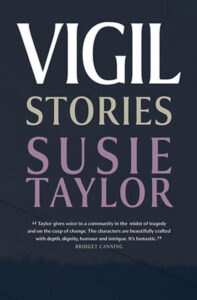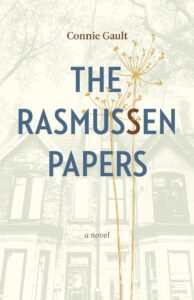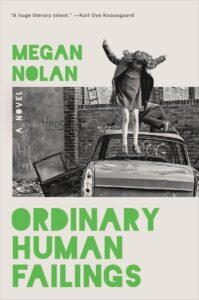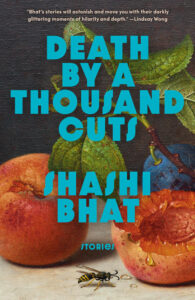May 31, 2024
Something With Good and Evil
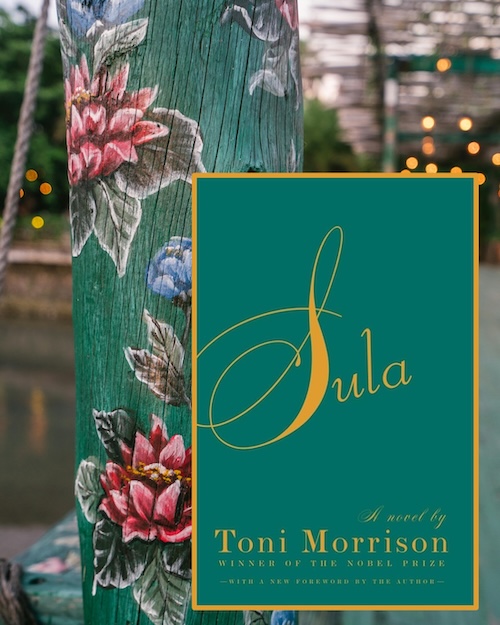
My May essay is about rereading Toni Morrison’s Sula, reconsidering this book about female friendship that is so much more than “just” a book about female friendship—but maybe that’s the thing about great books about female friendship—they’re always about so much more, because that’s the tangle that life is. Read it here! Many thanks to new subscribers—writing these pieces is so satisfying and you’re the icing on the cake.
May 29, 2024
Vigil, by Susie Taylor
If you think you know Newfoundland writing, then you need to know Susie Taylor, who has followed EVEN WEIRDER THAN BEFORE, her sparkling queer coming-of-age debut, with VIGIL, a book that’s even better, though it doesn’t sparkle so much as tremble, quake, and explode. It’s a collection of interconnected stories (and I’m going to declare it, don’t @ me) each of which really is a stellar example of the form, but the collection also properly satisfies the requirements of a novel, set against the fictional Newfoundland community of Bay Mal Verde, a place on the margins of geography, about people on the margins of society, their lives rattled by poverty and addiction. They’re tragic, but also funny, and familiar, the question of what happened to Stevie Loder at the centre of the plot. The title story opening the collection, about the impromptu memorial at the Ultramar after Stevie goes missing (“Someone had stuck a whole untouched Happy Meal on the growing pile of tributes…and the gulls swarmed the thing.”) Stevie is something of a perpetual loser (I wrote “something of” so I’d seem more compassionate), a scrawny kid who gets knocked around by the world, including his father and his friends, and grows up for more of the same, the story of his disappearance unravelling as the collection unfolds, connected to the respective narratives of characters including Joseph the garbage man, who runs a drug dealing empire, and the people in his employ, including local thug Kev Babcock, who we come to have sympathy for—but is Stevie so expendable? Perhaps. There is Ryan, who was friends with the other boys, but had a route out of town via university, which means that encountering him later in the story is gutting. Carter, whose practical younger sister is also drawn to Kev, but who (thankfully) is smarter than he is, and a meta kind of character called Susie, “that running girl,” who is not from Bay Mal Verde, but arrived in town with her girlfriend, drawing suspicion from that, but she’s alone now, running the trails and narrowly skirting danger, reporting what she sees (except for a pivotal moment when she doesn’t).
The stories in Taylor’s Vigil are a chorus, and they make a song that soars, the bleakness of their concerns offset by the vitality of the voices, and the shimmering moments of redemption woven like miracles throughout the text.
May 28, 2024
The Rasmussen Papers, by Connie Gault
“How strange it is that our lives are not usefully taken apart, not instructive in their compartments, but everything in one life is twisted inextricably with everything else, and it’s impossible to decipher it all.”
What a fascinating, sly, and tricky novel is Connie Gault’s THE RASMUSSEN PAPERS, Alissa York’s blurb conjuring the image of a fox with a quicksilver tip to its tail, and that’s it exactly. An urban fox, of course, out of place, slipping along the sidewalk and disappearing down into a ravine leaving no trace, as though it had ever been there. Like Gault’s unnamed narrator, an essayist hoping to write a biography of the iconic but enigmatic Canadian poet, Marianne Rasmussen, who concocts a plan to rent a room in the home of Aubrey Ash, on the cusp of his one hundredth birthday and Rasmussen’s former lover. Once ensconced, the narrator hopes, she will find her way to Ash’s papers and finally undercover the mysteries and crack the code of Rasmussen’s most famous work—but all this turns out to be more complicated than she’d supposed.
Who IS the fox, after all? Is it our unnamed narrator, or Aubrey Ash himself? Ash’s attractive much-younger brother, whom the narrator is drawn to? Is it the cocky young literary critic whose many affectations include a cravat, who—inadvertently or otherwise—sets the narrator’s plan in motion? Is it the patriarchy, the oldest of old boy’s clubs? Or the city of Toronto and its seedy downtown east side, desperate people parked in doorways or screaming expletives on public transit, something scrambled in their brains, perhaps, or maybe they just see everything more clearly than the rest of us.
I loved this novel, which reminded me of Carol Shields in the very best way—imagine the preoccupations of her novels Swann and Unless. About the problems of biography, literary mythology, women writing, bystanding, and the impossible challenges of giving form to the world and to life itself.
May 27, 2024
Infinity Mirror
A few weeks ago, I googled the phrase, “moral clarity,” because I’d been hearing it a lot lately in the context of protesters for standing up for a ceasefire in Gaza and Palestinian statehood, and I realized I actually didn’t know what “moral clarity” meant.
And before you start thinking I’m that obfuscating bad-faith “just asking questions” guy, as I googled “moral clarity,” I’d also just sent an email to the President of the university of which I’m both an alumnus and a neighbour voicing my support of students encampments, suggesting that I’d prefer the university administration to work with the protesters and learn from them too, instead of the nightmare of having protesters violently cleared as we’ve seen at other institutions. I’m writing this post now weeks later with the protesters facing the imminent possibility of forcible removal, as though this was the most pressing issue of our time, instead of the people burned alive in Rafah last night, the very people for whom the university protesters are rallying. Like, let’s have some perspective.
But even against a backdrop of abject horror, our words matter.
The article I found when I googled “moral clarity” was Frank Guan’s 2019 essay from The New York Times, “What Could Be Wrong With a Little Moral Clarity?” written in response to a line uttered by Alexandria Ocasio-Cortez the summer before after she’d won a Democratic-primary over an incumbent. “Until recently,” Guan writes, “‘moral clarity’ was more likely to signal combativeness toward the left, not from it: It served for decades as a badge of membership among conservative hawks and cultural crusaders.” He continues, “What adrenaline does for the body, moral clarity does for semantics: It generates a surge of willpower, serving as a prelude to—and maybe a pretext for—combat.”
And I was thinking about Guan’s essay as I read critiques and take downs of Zadie Smith’s New Yorker essay, “Shibboleth,” a piece I admired, which is also about how semantics becomes a weapon. Stacey Lee Kong of Friday Things (whose work I admire as well) called out Smith for “both-sidesing,” Kong and other readers discussing the essay as confusing, its point indecipherable, though I wish they’d tried a little harder to understand. That Smith’s piece is about the problem with “moral clarity,” with imagining that there is nothing remotely analogous about the following examples just because one happens to be on the right side of history (because everyone thinks they’re on the right side of history):
It is no doubt a great relief to say the word “Hamas” as if it purely and solely described a terrorist entity. A great relief to say “There is no such thing as the Palestinian people” as they stand in front of you. A great relief to say “Zionist colonialist state” and accept those three words as a full and unimpeachable definition of the state of Israel, not only under the disastrous leadership of Benjamin Netanyahu but at every stage of its long and complex history, and also to hear them as a perfectly sufficient description of every man, woman, and child who has ever lived in Israel or happened to find themselves born within it.
It is also a great relief to say, “Moral clarity.” Even though, as Smith writes, “Practicing our ethics in the real world involves a constant testing of them, a recognition that our zones of ethical interest have no fixed boundaries and may need to widen and shrink moment by moment as the situation demands.” Even though, “Hamas will not be ‘eliminated.’ The more than seven million Jewish human beings who live in the gap between the river and the sea will not simply vanish because you think that they should. All of that is just rhetoric. Words. Cathartic to chant, perhaps, but essentially meaningless.”
I’ve been thinking of Naomi Klein’s Doppelganger for months now, especially its consideration of Israelis and Palestinians being mirror images of each other, and how it turns out these mirrors are infinity mirrors, and moral clarity is part of the problem. And about how when protesters are speaking of “moral clarity,” as Guan writes, they’re unwittingly using language created by their political opponents, by Cold Warriors in the 1950s, by Ronald Reagan in the 1980s, George W. Bush in his 2004 Presidential campaign, and Alan Dershowitz, author of the 2009 book The Case For Moral Clarity: Israel, Hamas and Gaza, whose moral clarity is a different moral clarity than than of the protesters—or is it really?
I think of how often, when you ever try to fight a monster, the monster turns into you.
Isn’t fighting moral clarity with moral clarity a bit like fighting fire with fire? I’m still thinking of that line I read in the newspaper in March: “Both sides brought large speaker systems and screamed duelling chants at each other.” And where we do go from there? And isn’t it moral clarity that got us here in the first place? Moral clarity and righteousness, and isn’t unpacking such simplistic notions (constantly testing our ethics, rather than smug certainty) the only way to break the cycle, for the mirror to finally shatter so we can see the world as it is?
May 24, 2024
Ordinary Human Failings, by Megan Nolan
Are Irish writers having a moment, beyond Sally Rooney and Tana French, even? (And Claire Keegan, and Louise Kennedy, and Caroline O’Donoghue.) Here’s another, Megan Nolan, whose second book is Ordinary Human Failings, a novel that’s agonizing exquisite, beginning with the death of a toddler on a London housing estate in 1990, all local gossip pointing toward a semi-feral 10-year-old as the killer, the second child belonging to an Irish family that’s never really seemed right, particularly since the death of the mother, Rose, leaving behind her husband, John, disabled by a workplace accident; eldest son Richie, a drunk; daughter Carmel, beautiful and hardened; and Carmel’s daughter, Lucy, neglected and wild. All the pieces fitting into place, or at least that’s how it seems from the perspective of newspaper reporter Tom Hargreaves, young and striving, hoping to land that big scoop that’s going to take him somewhere far from here. He ends up with the family and uses whatever tools he has on hand to get them to hand him their misery, share the pitiful story of how they all ended up like this, but he’s not as savvy as he seems, which is to say that he just doesn’t get it (in both senses) and Nolan shows each family member’s most vulnerable and private selves, the tender bits that nobody else has ever witnessed before, and that nobody like Tom will be able to exploit. Nolan renders these people as tragically, achingly human, their stories only ordinary ones, so the title goes, but this novel itself is quietly magnificent.
May 22, 2024
The First State of Being, by Erin Entrada Kelly
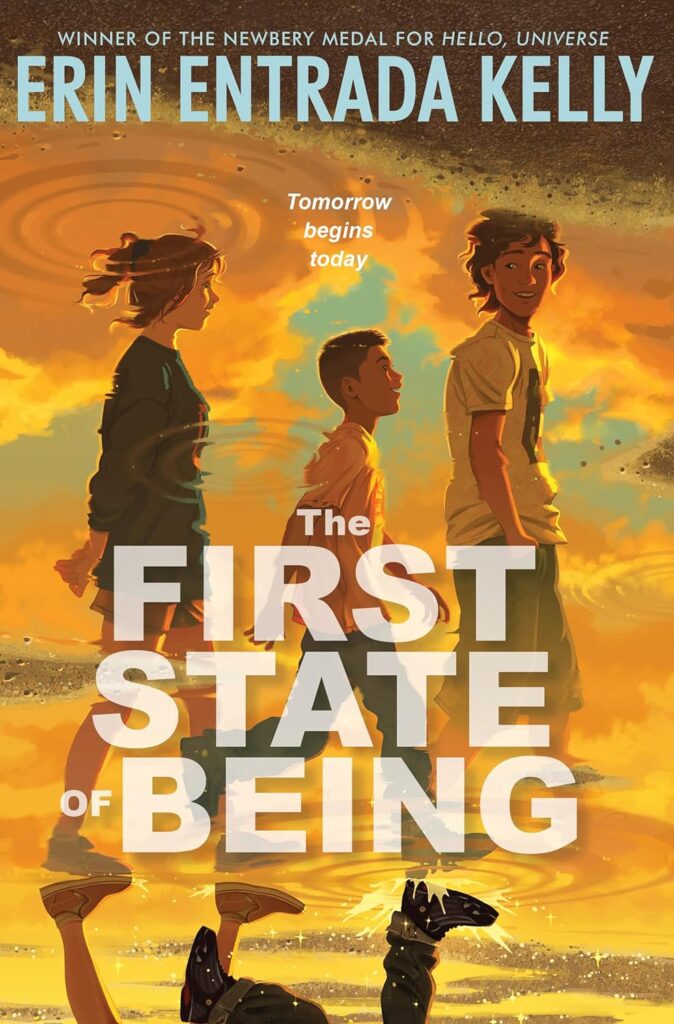
“I know it doesn’t seem glamorous or interesting to you right now… But that’s because no one realizes they’re living history every minute of every day. Sure, there are big moments, like the first Black president or the first trip to Mars and Jupiter, or the first STM. But the truth is, we’re making history at this very moment, sitting on this couch together… Every breath we take, we’re contributing to history.”
THE FIRST STATE OF BEING is not actually the first book I’ve read by Erin Entrada Kelly, whose 2017 novel HELLO UNIVERSE was (in addition to winning the Newbery Medal!) a pick for the parent-child book club I was in with my eldest a few years ago. I borrowed her latest novel from the library for her sister, who is (almost) 11, and didn’t have plans to pick it up myself until I leafed through a few pages and started reading the top of Page 43 where it says, “And it’s 1999! The best year!… The Backstreet Boys! Britney Spears! Fight Club! The Matrix! Ricky Martin, livin’ la vida loca! I mean, yes, I was goaded, but the truth is, I WANTED to see it. All of it. Especially the mall. Ordinary, everyday life. Weird?”
And there really was something about 1999, the music, the vibe, and it’s not JUST that it was the year I was 20. If you don’t know what I mean, check out Rob Harvilla’s essay, “How ‘Summer Girls’ Explains a Bunch of Hits—and the Music of 1999.” It was the summer I first learned how it felt to anticipate that incredible key change while belting out “I Want It That Way,” which I’ve been singing ever since, and I honestly never thought at the time that such an ordinary song, an ordinary moment, would prove so eternal, would become another kind of time machine. (The funny thing about growing up in the 1990s in a North America with Francis Fukuyama-inspired headlines and that Jesus Jones track playing in the background is that I really did feel history was everything that had come before us, and that somehow we had managed to be living outside of it.)
THE FIRST STATE OF BEING is set in the summer of 1999 in an apartment complex in Delaware where 12-year-old Michael is hiding stolen canned goods under his bed in preparation for the world falling apart when the calendar flips to the new millennium, Y2K being just one of his many anxieties—his mom is working three jobs and struggling to pay the bills, and Michael feels responsible for the stress she is under. Even worse, she insists on hiring him a babysitter a few days a week, even though Michael is too old for a babysitter, and even worse than that is that Michael has a crush on his babysitter, the brave and brilliant Gibby, age 16, a Neil Diamond cassette jammed in the deck of her 1987 Toyota Corolla.
And then the two of them meet Ridge, a strange-seeming kid hanging out in the courtyard, and when he tells them that he’s a time-travelling visitor from 200 years into the future, his story actually tracks. Ridge is obsessed with 1999, obsessed with seeing a mall, though he refuses to supply the information Michael really wants to know about just how Y2K works out. It turns out that clinging to certainty might not be the answer to anxieties about the future, especially because that leaves no room for the unexpected, and there is all kinds of great wisdom woven throughout the text about doing the best we can with what we’ve got today (which includes looking out for and taking care of each other).
“The first state of being… That’s what my mom calls the present moment. It’s the first state of existence. It’s right now, this moment, in this car. The past is the past. The future is the future. But this, right now? This is the first state, the most important one, the one in which everything matters.”
I LOVED THIS BOOK. And then I made my husband read it, and he loved it too. We’ve both adored Connie Willis’s Oxford Time Travel series, and this novel gestures toward their ethos in a subtle way, and I was also pleased to find an obligatory reference to Back to the Future and concerns about the Space-Time-Continuum, of course. Though THE FIRST STATE OF BEING’s treatment of time travel was also pretty fresh in its own right, transcripts from Ridge’s time and excerpts from contemporaneous books and articles about time travel and the technology behind it interspersing the 1999 chapters, these additions enhancing the novel and leading to more than a few moments when everything *clicked* and I started shouting with excitement as the pieces came together.
Too many science fiction books (especially for grown-ups!) become unwieldy, narratives overburdened by world-building, which makes the brevity and light touch of THE FIRST STATE OF BEING—a story built on all things huge and existential—all the more remarkable. How Erin Entrada Kelly managed to fit so much so easily into a story so brief must have been an exercise in essentiality, but she struck the balance exactly right, and I really can’t stop thinking about all it.
May 22, 2024
Gleanings
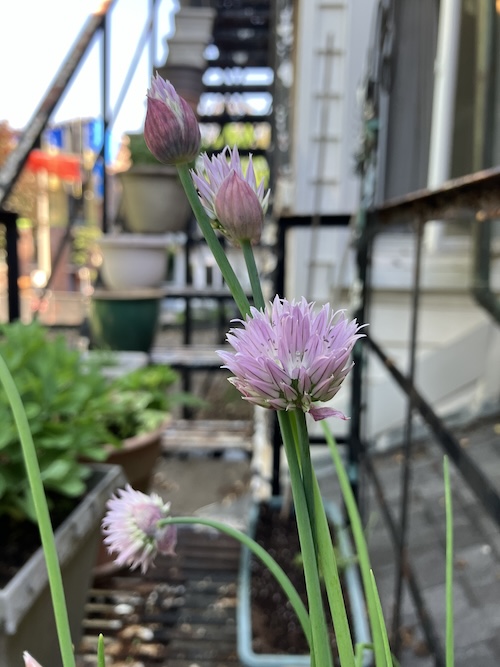
- It’s the constant thread that’s run through my musical taste since I was a kid. Sure there are exceptions to the rule, but the broad strokes of my music collection are generally in the guitar and feelings vein. The folk music I grew up with and still love? Guitar and feelings. The indie bands and Canadian rock I loved in high school? Guitar and feelings.
- But beyond that, even in the context of safe and trusting relationships, we’re simply not in the habit of asking about emotions, listening to the answer, and responding accordingly.
- A lady comes into order a book “Chemistry…” (me, uh oh we won’t have this) “… Lessons, by Bonnie Garmus.” Of course we have that. Customer is surprised and delighted, makes her purchase and then has a small coughing fit. She says “I’m not ill!” from the doorway and I reply, “it’s fine” and then I wonder what on earth I mean – it’s fine if you are ill? it’s fine if you’re not. I’m sorry I said “it’s fine” when what I meant was “do you need a glass of water?”.
- Yesterday was the best day ever. Perfect in fact and, whilst out, I knew that my next blog post would be joyful. It is amazing how much of nature’s peace we absorb if we only give it the chance to work its magic. Whatever happens in the next few weeks and months we’ll face together, but it is not now, nor then, going to occupy so much of my thought process.
- For the first time in weeks, it felt like an opening. Fresh sky, cleansed from last night’s rain, birdsong. Do you want me to set up a target, he asked, and I thought, yes, that’s exactly what I want: my feet in the moss, the bow in my hands, string pulled to my cheek, the arrows alive in the air.
- It was not the noise of the door that woke him; it was my absence. He does not sleep well when I am not beside him. Whenever I get up in the middle of the night and take too long, he comes looking for me.
- Nothing is ideal. I love that too, the reassurance of it. I mutter this phrase to myself a lot — “This is not ideal!” —- and not negatively, but encouragingly. I mean it as a form of freedom. Nothing about this is ideal. (And it does not need to be.)
- On a day when thoughts go to maternal places I remember how my mother liked bluebirds and flowers on her cards, the more saccharine the better and preferably store-bought. Nothing made at school with macaroni thankyouverymuch. So I grew up with a certain amount of seasonal card anxiety and my teeth still ache at cardboard bluebirds but what’s more interesting is how this stuff finds its way into our work.
- I nipped to the shops mid-afternoon to get some chemist-y stuff and a few little treats (a packet of Smarties, a packet of Tina wafers). While I was there, a mother with a baby in a pram and a preschooler beside her stood at the register ahead of me. The preschooler said to the shop lady “look what i can do!” and then she trilled her tongue quite loudly and very proudly. The shop lady was obviously amazed.
- Munro writes about ordinary women with extraordinary complexity. In one interview, Alice Munro said she didn’t think anyone was, in fact, ordinary.
May 21, 2024
BOOKSPO 12 (and Season Finale!)
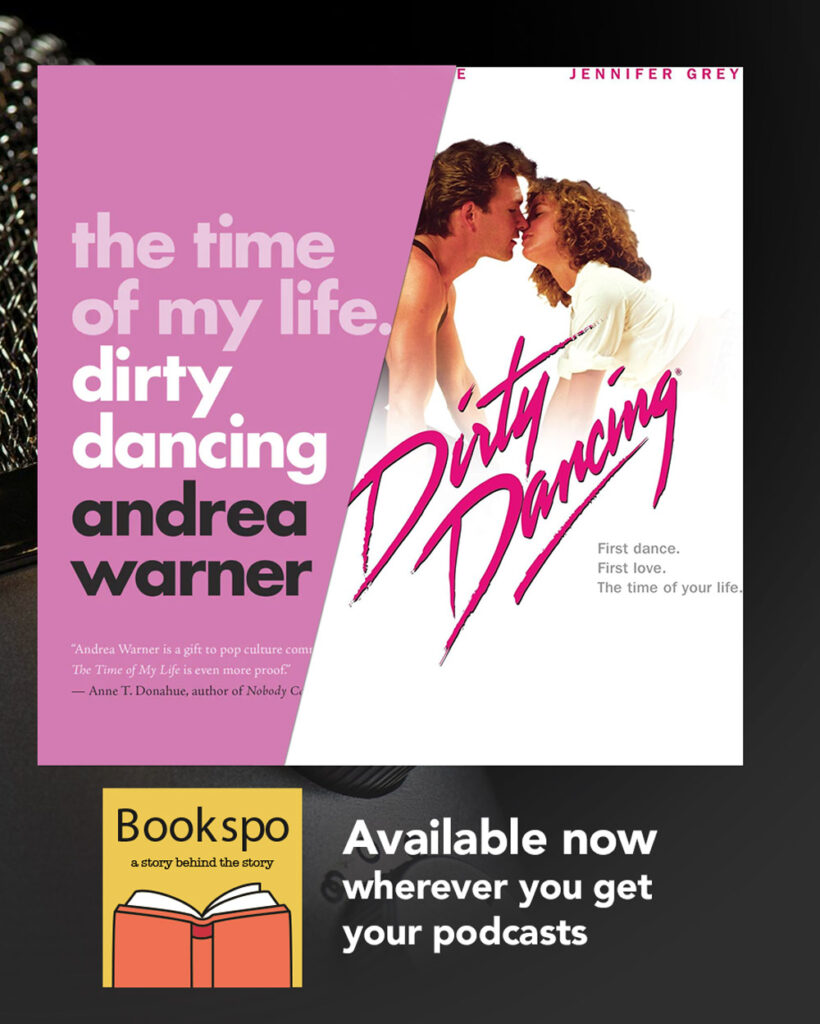
We break ALL THE RULES (okay, there was only ever one rule, but still) with our season finale and the magnificent Andrea Warner’s appearance on the podcast this week. It’s one of my favourite writers talking about my favourite movie, and how it was foundational to Andrea’s own experience and inspired her compelling new homage/memoir/cultural-criticism hybrid, THE TIME OF MY LIFE: DIRTY DANCING, a book I adored.
Andrea talks about why Dirty Dancing is a project worth breaking the rules for, how Eleanor Bergstein was prescient in understanding the precarity of reproductive rights in America during the 1980s, her subversion in making an illegal abortion the centre of her screenplay, the film’s best lines (I carried a watermelon?), how it models community care in action, how fantastic is its demonstration of enthusiastic consent, why it’s important to be honest in critiquing the pop culture we love, and Andrea also has a VERY controversial take on the iconic pop song that gave her book its title, and SO MUCH MORE!
Listen at Substack or Apple Podcasts.
May 17, 2024
First Bloom
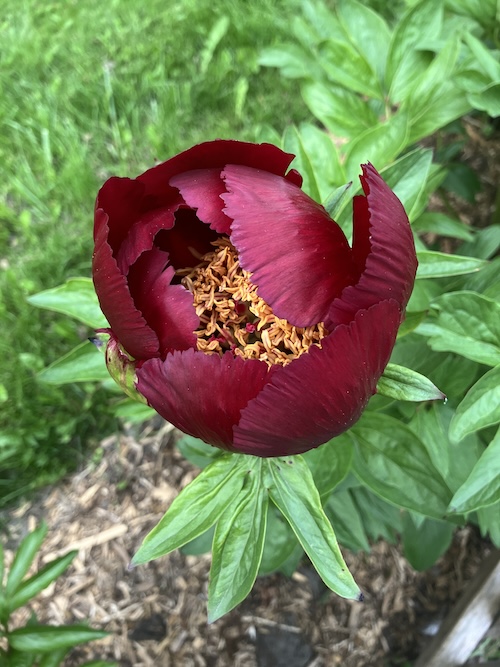
Every year, the peony show down the street from my house never disappoints, and I was excited—on Wednesday—to see that it had begun.
May 15, 2024
Death By a Thousand Cuts, by Shashi Bhat
The first time I read Shashi Bhat was her Journey Prize-winning story “Mute” in 2018, and I remember just feeling captivated by the narrative voice, being struck by the singularity of her character’s experience, and yet noting how much I could identify due to the specificity of her perspective and the choice of such essential details. A scenario that really gets under the skin, that’s really “cringe,” as the kids say. A little “Cat Person,” a little Sally Rooney, altogether timely in the age of #MeToo, but also I just read it and wanted more of literature that can affect me like that, and thankfully Bhat delivered with The Most Precious Substance on Earth, her excellent 2021 novel-in-stories, and now with her latest, Death By a Thousand Cuts, which is just devastatingly devourable and I read in a single day.
Naturally, every time I think of this book, the Taylor Swift song of the same name starts playing in my head, which I’m not sorry about. And I don’t know if Shashi Bhat is a Swiftie, but her literary preoccupations are not different from those in Taylor’s tortured poetry—her stories are about seeking and not finding, about the tedium of dating, about longing and wanting and disappointment, but there’s also a brutality to them too, a sting. (Let the wasp on the cover of the book be a warning.) As I was reading this book upstairs, I kept having visceral reactions to the stories, gasping in dread and horror, and members of my household were concerned for my well being, which says a lot for a book, that they can affect one in this way.
These are stories that will be appreciated by readers who aren’t even sure that they like reading short stories. And while I know short story lovers bemoan the form’s lack of wider and/or commercial acceptance, I get it too—as a reader I want something immersive, something deep and lush to sink into and get lost inside, the way I can inside a novel, but in these stories, I really can, so much richness, so much texture. As satisfying as the dripping fruit of the cover, but even better, because I can read them over and over again.
